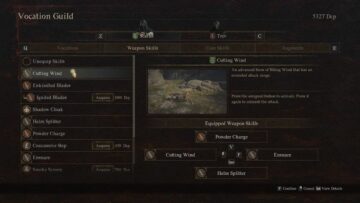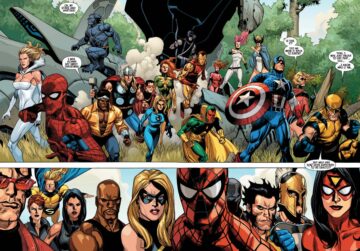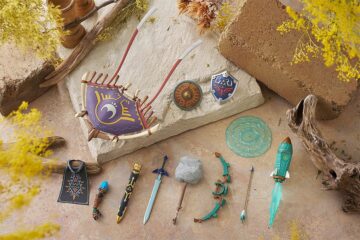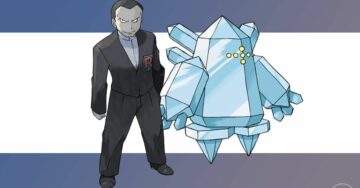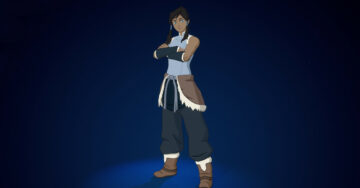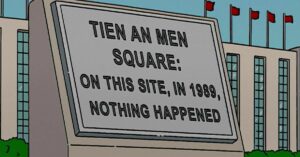Throughout The Walking Dead’s near 15-year run as a televised franchise (the comic it’s based on turns 20 this October), many characters have served as its figureheads. You have Rick Grimes, the former cop who does his best to maintain order among communities prone to bloodlust. You have Michonne, the katana-wielding badass, and Glenn, the hopeful fan favorite. You even have Negan, a man who ranges from “reformed warlord” to “perverse psychopath.” All of these characters are fairly close adaptations of those found in the original comics. But one, a character that potentially eclipsed the popularity of all of them, was totally new when he debuted in the second episode of the first season: Daryl Dixon.
Powered by a charmingly gruff performance by Norman Reedus, an actor that is no stranger to bloody genre fare, Dixon has gone from being The Walking Dead’s most consistent side character to the closest thing it has to a mascot. He’s a truly one-size-fits-all addition to the cast: Armed with his trusty crossbow, he’s perfect for the action sequences and practical gore extravaganzas that The Walking Dead delights in. His loyalty and expertise make him a stable person for the less experienced members of the zombie-fighting crew. Meanwhile, the way he often leans toward being a loner and emotionally isolating himself makes any friendship with him feel like an earned achievement. In short, he’s the The Walking Dead version of Wolverine.
And like Wolverine has done, venturing outside the typical confines of the X-Men and entering multiple solo ventures, Daryl Dixon is now getting the chance to lead his spinoff show, titled The Walking Dead: Daryl Dixon. But the comparison between Daryl and Logan is more than a personality mix and match — it’s hard to find an adventure series that doesn’t have a rough-edged side character that can be a little prickly from time to time. However, the way that they were installed in their respective franchises and the role that they continually play over time makes for a pretty unique pair.
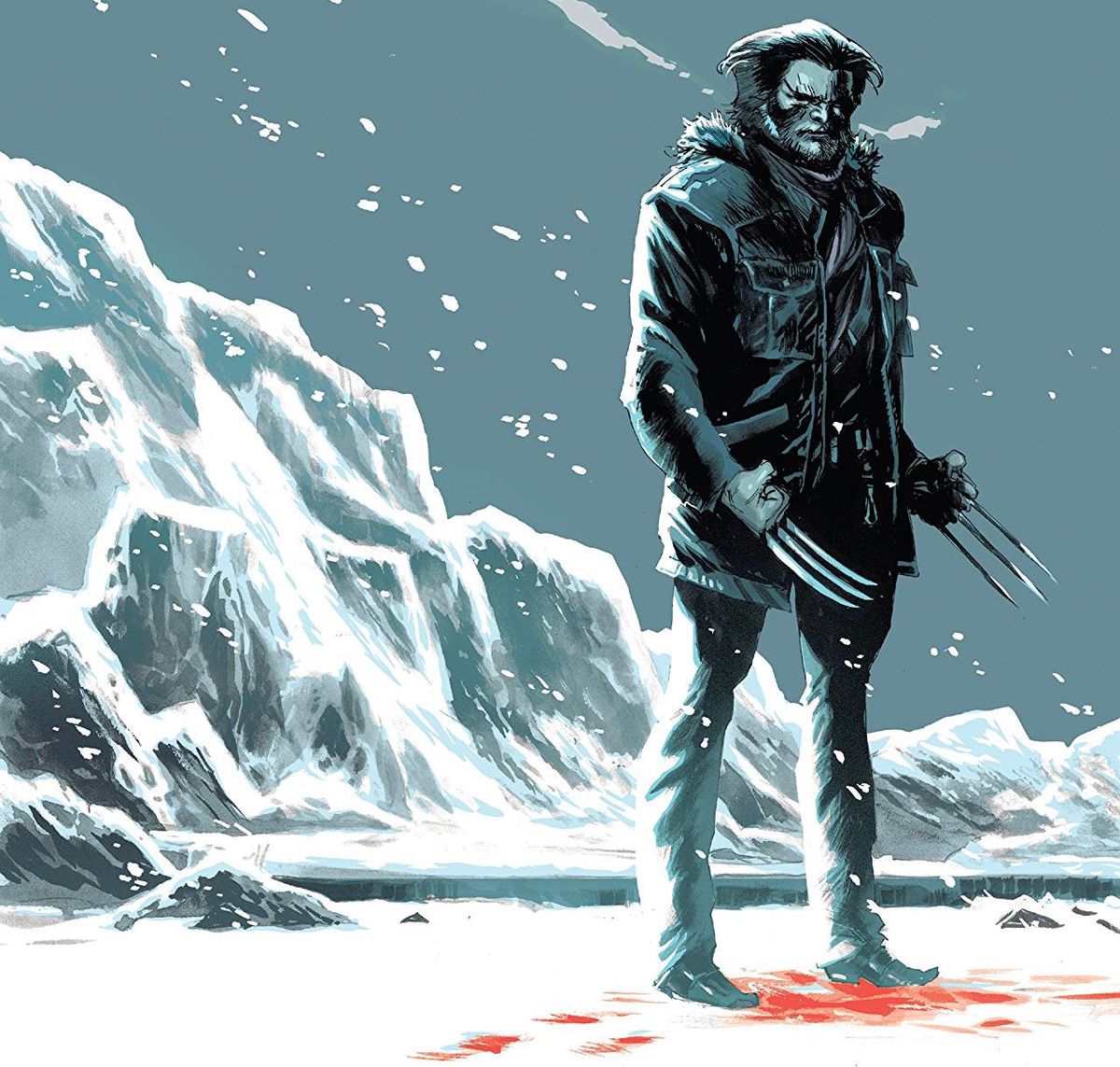
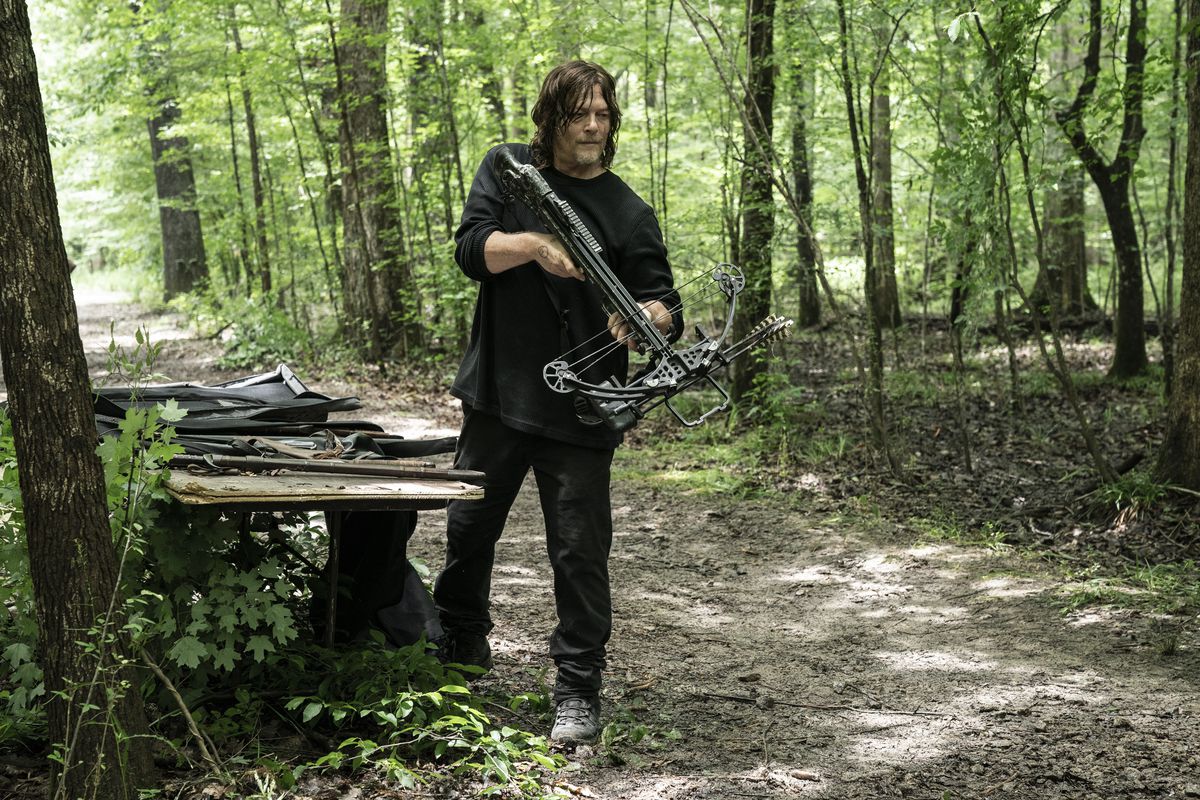
The original team of X-Men, devised by Jack Kirby and Stan Lee, is rather milquetoast. Characters have their internal squabbles and frayed relationships, but they lack the potency of the many classic characters of the era, like the Fantastic Four or Spider-Man. Thematically, with their metaphors about respecting diversity and our innate civil rights, they’re a treasure trove. It’s why Giant Size X-Men #1 was such an important comic, with vibrant new characters like Wolverine, Nightcrawler, Storm, and Colossus debuting as a team for the first time. The plot of that issue involves them literally saving many of the original X-Men, a pretty apt message considering their previously canceled comic.
Daryl Dixon was a needed character as well. From the beginning, The Walking Dead would be a mix of hitting certain established comic beats and charting new territory. (The Walking Dead comics are a little more intricate from the start, but that’s because Marvel’s emotional work in its books allowed trauma-fueled series like The Walking Dead to one day run wild.) But without some new energy to lighten it up, it was doomed to be seen as inherently inferior to Robert Kirkman’s comic that, for the first few volumes, remains a gruesome masterpiece. The show had already attracted a fan base trying to predict where it would go next, and Daryl was an unpredictable element. He immediately made his mark as one to watch, his aloof presence shaking up the established hierarchy of overly intense guys trying to exert their control over a chaotic situation.
Wolverine, in particular, also lit up the imagination. Though he was another white guy being added to the team, he didn’t resemble the stock action figure look of someone like the tall, lean Cyclops. Instead, Wolverine was short, brawny, and didn’t get along very well with anyone. Being close to Wolverine was a sort of honor — sure, he’d work with you, but only under very specific circumstances would he want to hang out with you. This is perhaps his most unassailable aspect: Even Hugh Jackman, a foot taller than the comic book version, spends most of the first film annoyed by Cyclops and feeling paternal about Rogue.
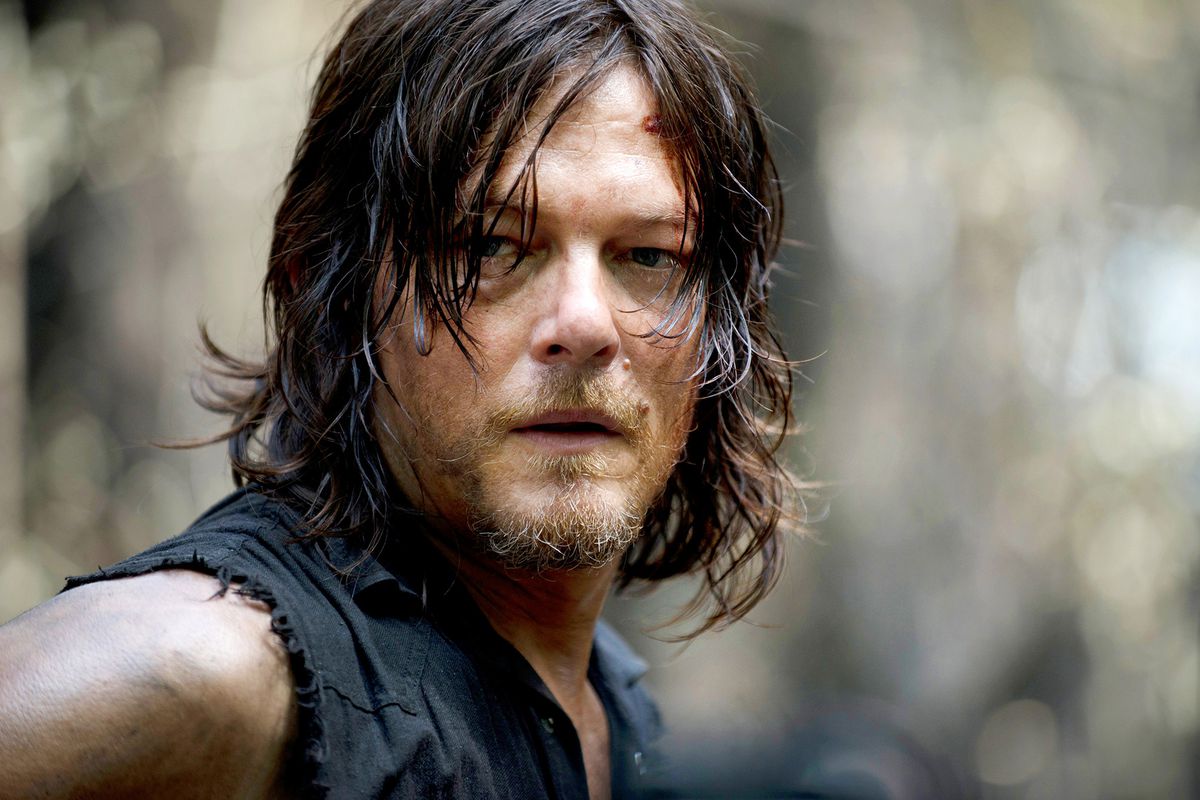
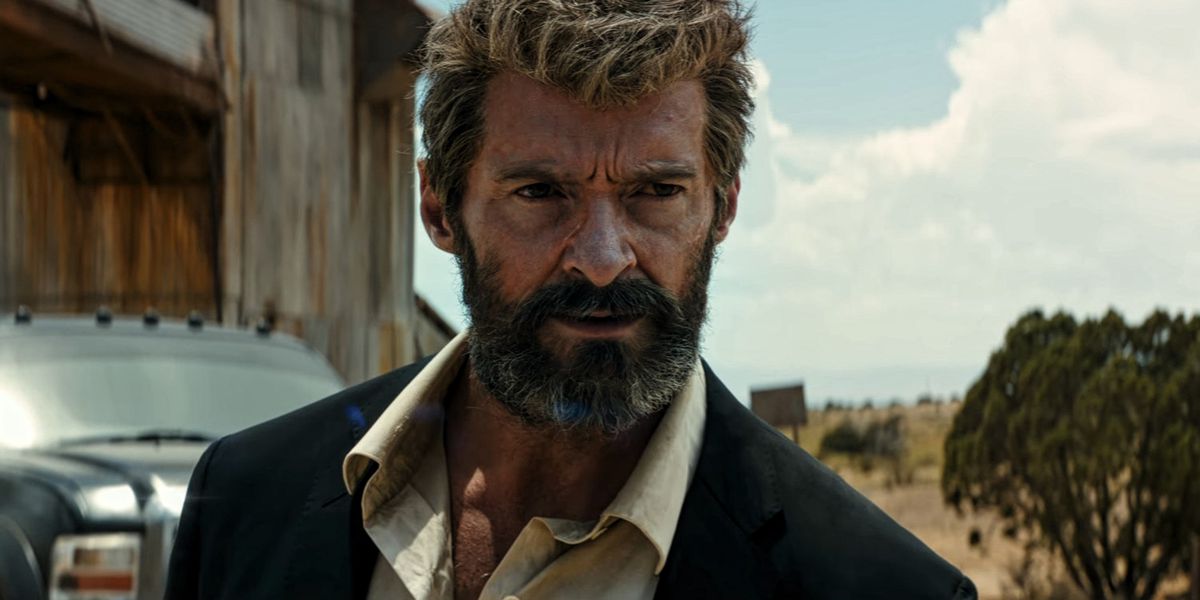
When Dixon shows up in The Walking Dead, he follows much of the same pattern. He’s an outcast among his own group, even more distrustful of them due to what happened with his brother (a loud redneck who got handcuffed to a pipe on a roof when he flew off the handle, only to disappear, leaving one severed hand behind). Without his brother, his source of solace, he has to find his purpose again. Just as Wolverine struggles to be a part of a team after being engineered as a Black Ops-esque killing machine, Dixon has to become a pillar of a new community when his instincts say that campfire gatherings with a bunch of randos will likely get him eaten.
One of the many joys of both Wolverine and Daryl is seeing them travel off on their own. They’d gotten used to angrily babysitting their respective groups, so how will they react in a new environment with new people? How will they find a rejuvenated purpose? Who will they be able to connect with, especially since, for both characters, their roots often run extremely deep? Both Daryl and Wolverine remain haunted by “siblings,” relationships that inform every friendship that they’ll ever hope to make in the future.
Daryl arrives in the zombie apocalypse with his aforementioned loud redneck brother Merle, and Wolverine must always be on the lookout for former Weapon X partner Sabretooth. In both cases, these cracked mirrors of brotherhood represent who the character would be were they not so devoted to a personal code. Though Merle attempts to redeem himself before being bitten (forcing Daryl to tearfully kill his zombified kin), he’s much more of a bully, throwing his weight around whenever he can. Sabretooth also relishes his intense strength and utter lack of ethics, almost as a display to Wolverine of how easy it would be to live if he just didn’t care about cutting up the innocent from time to time.
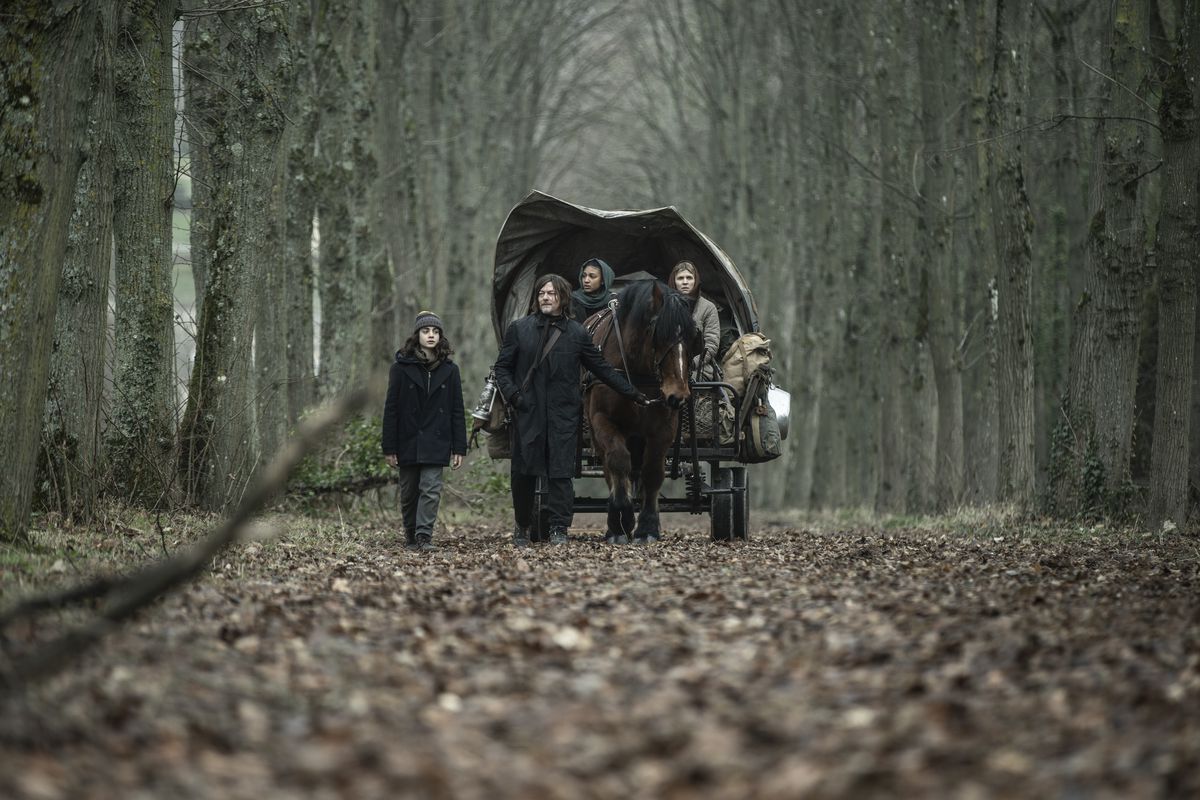
But in the end, it’s that code that defines Daryl and Wolverine most. Wolverine can be an asshole, but he refuses to turn his back on those that need help. It’s what makes up the drive of the acclaimed Logan, and it’s what fuels The Walking Dead: Daryl Dixon. A man, entirely divorced from the found family that he spent over a decade with, now has to contend with just himself and some strangers that ask him to protect them. It’s what makes this series the best part of The Walking Dead since its early seasons — devoid of all the franchising growth and infamous narrative complications, all we have is whoever Daryl is willing to shoulder. And like Wolverine, if he feels called to, he can carry a lot.
As the franchise and its characters move into the future with spinoffs like Daryl Dixon, this ability to maintain composure in a world that finally seems to be coming together a little bit is necessary. So even though he started as a rugged survivalist type, the antithesis of the community building that others strove for, it’s Daryl that might be the best proof that humanity will inevitably find its way. It doesn’t hurt that Daryl Dixon has never been as quick to fall into the downswings of intense violence that other Walking Dead characters have, moments and actions that cause them to reevaluate whether they’re good people or whether it’s possible to be a good person at all in the apocalypse. Instead, he simply does what he feels is right, a refreshing stance amid the anguished fragility of humankind gone sour. And while one might call that the same old Daryl, for fans of The Walking Dead, that’s all they’ve ever wanted.
- SEO Powered Content & PR Distribution. Get Amplified Today.
- PlatoData.Network Vertical Generative Ai. Empower Yourself. Access Here.
- PlatoAiStream. Web3 Intelligence. Knowledge Amplified. Access Here.
- PlatoESG. Automotive / EVs, Carbon, CleanTech, Energy, Environment, Solar, Waste Management. Access Here.
- PlatoHealth. Biotech and Clinical Trials Intelligence. Access Here.
- ChartPrime. Elevate your Trading Game with ChartPrime. Access Here.
- BlockOffsets. Modernizing Environmental Offset Ownership. Access Here.
- Source: https://www.polygon.com/23864310/walking-dead-daryl-dixon-wolverine-cast
- 20
- 3000
- a
- ability
- able
- About
- about Rogue
- acclaimed
- achievement
- Action
- actions
- Adaptations
- added
- ADDITION
- Adventure
- aforementioned
- after
- again
- All
- allowed
- almost
- along
- already
- also
- always
- amid
- among
- an
- and
- Another
- any
- anyone
- APT
- ARE
- armed
- around
- as
- ask
- aspect
- At
- attempts
- attracted
- back
- base
- based
- BE
- because
- become
- been
- before
- beginning
- behind
- being
- BEST
- between
- Bit
- Black
- book
- Books
- both
- Building
- Bully
- Bunch
- but
- by
- call
- called
- CAN
- canceled
- care
- carry
- cases
- Cause
- certain
- chance
- character
- characters
- charting
- civil
- Classic
- close
- code
- coming
- Communities
- community
- Community Building
- comparison
- connect
- considering
- consistent
- continually
- Control
- cover
- cracked
- Crew
- cutting
- day
- dead
- debuted
- debuting
- decade
- deep
- defines
- Diversity
- does
- done
- drive
- due
- Early
- earned
- easy
- element
- Emotional
- emotionally
- end
- energy
- entering
- entirely
- Environment
- episode
- era
- especially
- established
- ethics
- even
- EVER
- Every
- experienced
- expertise
- extremely
- fall
- family
- fan
- fans
- Fantastic Four
- favorite
- feel
- few
- Figure
- Film
- Finally
- find
- First
- first time
- follows
- For
- Former
- four
- fragility
- Franchise
- Franchises
- French
- Friendship
- from
- fuels
- future
- Gaming
- Genre
- Get
- getting
- go
- gone
- good
- Grimes
- Group
- Growth
- had
- hand
- handle
- happened
- Hard
- has
- Have
- he
- help
- him
- his
- hitting
- holding
- hope
- hopeful
- horse
- How
- however
- HTTPS
- Humanity
- Humankind
- if
- imagination
- immediately
- important
- in
- inevitably
- inFamous
- inform
- inherently
- innocent
- instead
- internal
- into
- Is
- issue
- IT
- ITS
- joys
- jpg
- just
- Kin
- Kirby
- lack
- lead
- leaving
- lee
- less
- like
- likely
- Little
- Live
- Long
- Look
- lot
- LOUD
- Loyalty
- machine
- made
- maintain
- make
- MAKES
- man
- many
- mark
- masterpiece
- Match
- Meanwhile
- Members
- Message
- might
- mirrors
- mix
- moments
- more
- most
- move
- much
- multiple
- must
- narrative
- Near
- necessary
- need
- needed
- never
- New
- Next
- Night
- no
- not
- now
- October
- of
- off
- often
- Old
- on
- One
- only
- or
- order
- original
- Other
- Others
- our
- out
- outside
- over
- own
- pair
- part
- particular
- partner
- Pattern
- People
- perfect
- performance
- perhaps
- personal
- Personality
- Pillar
- pipe
- plato
- plato data intelligence
- platodata
- platogaming
- play
- Polygon
- popularity
- possible
- potency
- potentially
- practical
- predict
- presence
- pretty
- previously
- proof
- protect
- pulling
- purpose
- quick
- rather
- React
- redeem
- Relationships
- remain
- remains
- represent
- respective
- right
- rights
- ROBERT
- Rogue
- role
- roof
- roots
- Run
- same
- saving
- say
- season
- second
- seeing
- seems
- seen
- self
- Series
- Short
- show
- shows
- side
- Simply
- since
- situation
- Size
- snow
- So
- Solo
- some
- someone
- source
- spider-man
- stable
- STAN
- standing
- start
- started
- stock
- Storm
- stranger
- strength
- such
- sure
- Team
- territory
- than
- that
- The
- The Future
- their
- Them
- These
- they
- thing
- this
- those
- though
- Through
- time
- titled
- to
- together
- totally
- toward
- travel
- true
- truly
- turn
- turns
- type
- typical
- unique
- unpredictable
- up
- used
- Ventures
- version
- very
- vibrant
- volumes
- walking
- walking dead
- want
- wanted
- was
- Watch
- way
- we
- well
- were
- What
- when
- whenever
- where
- whether
- while
- white
- WHO
- whoever
- why
- wild
- will
- willing
- with
- without
- Woods
- Work
- world
- would
- X
- x-men
- you
- zephyrnet
- zombie

